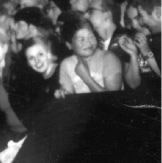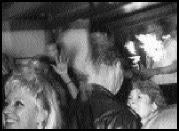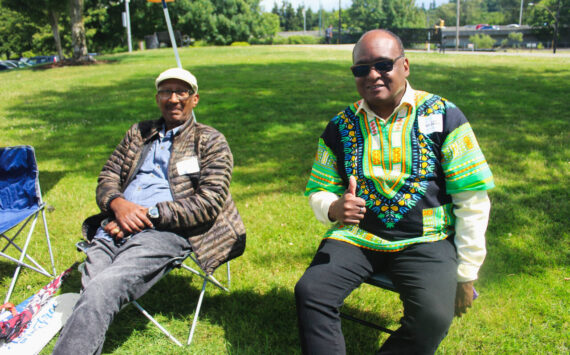HEAR THOSE howls of protest? Music fans and civil libertarians are once again accusing City Hall of plotting against Seattle’s music scene. This time, the Seattle City Council has listened to their pleas, postponing a vote on revising the city’s law that governs how and where events can be held in the city.
“It appeared to me there wasn’t majority support to move” on the law, says council member Peter Steinbrueck, who led the push to postpone the vote. “I personally still have some major questions.” So, apparently, did at least five other council members, with only Jim Compton, Margaret Pageler, and Jan Drago ready to vote in favor of the law on Monday. After review by the council’s research arm—a process that’s ordinarily de rigueur for controversial legislation—the law will be debated, possibly revised, and brought up for another vote, probably by Oct. 22.
The American Civil Liberties Union (ACLU) and the Joint Artists and Musicians Promotions Action Committee (JAMPAC) led citizen opposition to the law, which would require events expected to draw a crowd in a public place to go through the city’s extensive permitting process. Opponents say the law defines “special events” so broadly that virtually any event with any impact on public space would fall under its scope.
The law had its roots in a laudable goal: avoiding a repeat of the events of last Feb. 27, when out-of-control Pioneer Square revelry led to the death of 20-year-old Kristopher Kime. City Council Public Safety Committee chair Jim Compton, the primary council backer of the ordinance, says that “people who promote events like [Mardi Gras should] be held accountable legally and financially for what happens in our streets.” But others call the ordinance an overreaction to an isolated tragedy. “They feel the way to ensure something like that never happens again is to cast a net over all events that happen in the city of Seattle,” says Angel Combs, JAMPAC’s director .
By far the most contentious aspect of the amended law is a section defining a “special event” as an event that is “reasonably expected” to cause 50 or more people to gather in public, a definition JAMPAC’s Combs calls “just ridiculous.” Steinbrueck, who has proposed changing the minimum to 250, points out that the legislation was crafted “as a response to deal with events that could become unruly and overwhelm the ability of police to respond on short notice,” not crowds of a few dozen individuals. “I don’t think the police have to worry about 50 people that spill out onto the street” from a club, Steinbrueck says.
But Compton’s office points out that the 50-person rule is only one of several criteria that triggers the special-events law. Other amendments to the ordinance say a special event must have a “substantial impact” on a public place, and be likely to require “substantial public services”—cops, firefighters, traffic control, and the like.
The ACLU’s Jerry Sheehan says those terms are “way too vague.” Steinbrueck agrees, calling the new criteria “subjective and open to interpretation.” The ACLU would like to see the definition tightened to include only events that would draw more than 500 people, though an amendment to that effect failed in committee. Compton’s office says all those options will be on the table again in the upcoming debate on the law.
Combs worries that events with unpopular messages or the “wrong” kind of patrons would be subjected to harsher treatment by the city. “If the Bon has a sidewalk sale or there’s an art walk, they’re not going to enforce it,” Combs says. “If Pioneer Square wants to do something, they can simply say no.” The law, Sheehan adds, “grants excessive discretion to the special-events committee. What we’re worried about is due process.”
Compton claims the last thing he wants is to pass “repressive” legislation. “We’re not casting a net so wide that it poses any problem whatsoever for any legitimate musical or artistic event,” Compton says. “The city has no interest in what is being said, what music is being played, what prayers are being said, or what political ideas are being trumpeted.”
But for Sheehan and other opponents, the bottom line is that, under the law as it’s written, the city could make decisions that impact all those things. “Government agencies are run by human beings with their own biases and prejudices,” Sheehan says.







